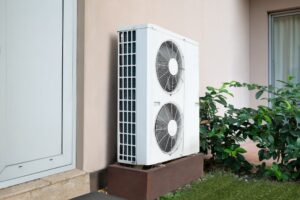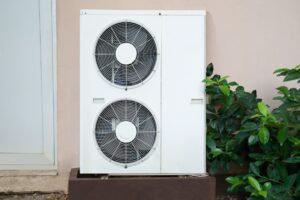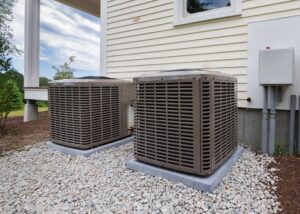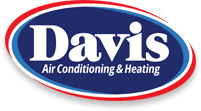A Simple Guide for Improving Indoor Air Quality
Air quality in your home directly affects your family’s health. Poor indoor air quality (IAQ) can irritate asthma, encourage bacteria growth, and make your family prone to illness. Improving the indoor air quality of your Surfside Beach, Texas, home can be as simple as opening a window or as advanced as using an air cleaning unit, humidifier, or ventilator.
What Can I Do to Improve IAQ?
You can improve your home’s IAQ in several ways, from doing simple chores to installing highly effective HVAC equipment. Which method you choose will depend on the type of indoor pollutant you want to target.
Asthma and allergy triggers are some of the most common types of indoor pollutants. These triggers include dust and pollen that enter your home from the outside, as well as pet dander from your indoor pets. Other allergy triggers include mold and bacteria that grow in moist environments, such as your bathroom or basement.
Fuel-burning appliances, such as furnaces or gas stoves, create combustion pollutants. If not properly ventilated, pollutants left from combustion can linger in your indoor air and affect your health.
Volatile organic compounds (VOCs) are harmful gasses associated with a number of health effects. Chemical cleaners and household products often contain VOCs, as do some paints and many hobby-related glue and pastes.
Improving your home’s IAQ means minimizing, trapping, or eliminating these indoor pollutants. Whether you’re ready for big or small changes, improving your IAQ will keep your family healthy.
Keep Up on Regular Cleaning
Cleaning your home is an important way to prevent dust mites, pollen, and other airborne particles from circulating indoors. These particles can irritate asthmatic and other family members alike.
Pet dander is a common trigger for allergy sufferers. If you have pets, vacuum, sweep, and dust your home regularly. Vacuum carpets, curtains, and upholstered furniture regularly to keep pet hair and dander out of your indoor air.
Use Air-Friendly Cleaning Products
When you clean your home, pay attention to the ingredients in the products you use. Many household cleaners emit VOCs that can have negative effects on your health.
Solvents and disinfectants often include VOCs in their ingredients. In large concentrations, VOCs cause itchy and watery eyes, headaches, nausea, fatigue, dizziness, and irritations to your nose and throat. To lower your exposure to VOCs, use air-friendly cleaners that use fewer chemicals. Products without dyes and fragrances reduce the chemicals released into your home. Check your grocery store or hardware store for natural cleaners. Also try using simple products such as baking soda, vinegar, or borax as household cleaners instead of made-for-purpose cleaning products.
Clean or Change Air Filters
You should regularly change and clean your HVAC system’s air filters. Air conditioners, furnaces, and heat pumps all have an air filter to trap particles as air circulates through the unit. A clean filter will trap particles properly, while a clogged or dirty filter will not.
Air may leak around a clogged HVAC filter, forcing your unit to circulate unfiltered air through your home. A clogged filter also forces your HVAC unit to work harder to draw air through it, leading to greater wear and tear and increased risk of breakdowns. Be sure to check your air filters once a month and replace or clean them if necessary.
Decorate With Indoor Plants
Decorating your home with plants not only makes it more beautiful, but it also helps keep your indoor air clean. Several types of indoor plants effectively filter airborne pollution, making them a great choice to improve your home’s IAQ. Some plants absorb harmful airborne chemicals, such as benzene and formaldehyde.
Spider plants, bamboo palms, and aloe vera clean your indoor air, are easy to care for, and thrive indoors. Using photosynthesis, these plants take carbon dioxide and other toxins from your indoor air and turn them into clean oxygen. As an added benefit, the microorganisms in potting soil also absorb pollutants, contributing to clean indoor air.
Use a Humidifier
Whether you’re using an air conditioner to cool your home or a furnace to heat it, your indoor air can become dry, lowering the IAQ. According to the U.S. Environmental Protection Agency (EPA), the ideal humidity should be between 30 and 50 percent. If your indoor air is too dry, consider using a humidifier to keep your home at a comfortable humidity level.
When the air in your home is not humid enough, it dries out your throat and nasal passages. Dry air can cause nosebleeds and prevent your nasal passages from trapping particles and pathogens properly. Additionally, dry household air can make breathing in bacteria and viruses easier and raise your risk of sickness.
Davis Air Conditioning & Heating has options for whole-house humidifiers, units that can address dry air throughout your home. Contact our knowledgeable staff to help you choose a humidifier designed to work with your existing HVAC system, including forced-air furnaces or heat pumps.
Install a UV Lamp
Ultraviolet (UV) lamps prevent the growth of mold and bacteria using UV light. When installed on your air conditioner’s coils, a UV lamp destroys pathogens, preventing them from circulating through your home.
Ultraviolet light kills bacteria, viruses, and mold by damaging their cells. A UV lamp installed inside your HVAC unit provides maintenance-free peace of mind. During your annual HVAC system maintenance check, have your technician check and replace your UV bulb if necessary.
Open Your Windows
Take advantage of comfortable outdoor temperatures: Open your windows to let fresh air into your home. When you keep your windows closed for days or months, the air in your home gets stale. Stale, stagnant air traps airborne particles and pollutants inside your home, decreasing the IAQ and affecting you and your family. Increasing IAQ is as simple as opening a window and letting in some fresh air.
According to the EPA, air within homes and other buildings can be more seriously polluted than the outdoor air. Proper ventilation is one of the most effective ways to improve IAQ. You don’t need to leave your windows open all day — opening your windows for a few minutes can help.
Invest in a Ventilator
When your home is tightly sealed, you lower energy loss, but you could be trapping irritating particles or harmful toxins in your home, which can lower your home’s IAQ. During the summer’s heat or winter’s cold temperatures, you may not want to open a window. When you want to keep the temperature of your home stable and enjoy the benefits of fresh air, consider installing a ventilator unit.
Davis Air Conditioning & Heating offers several types of whole-house ventilator units, including both energy recovery and heat recovery models. Both of these types use a heat exchanger to support a comfortable temperature in your home, supply your home with fresh air, and exhaust stale air. Using an energy recovery ventilator means the unit also transfers moisture, which helps to support your home’s humidity. A heat recovery ventilator also maintains the temperature of your home without moisture transfer.
Install an Air Cleaner
Asthmatic family members will appreciate the benefits of an air cleaner in your home. An air cleaner unit works along with your existing HVAC system to remove bacteria, viruses, mold, and allergens from your indoor air. Additionally, an air cleaner is one of the most advanced ways to improve your home’s IAQ. When in use, this device traps and removes pathogens that bypass the filters of other units.
A whole-house air cleaner filters the air throughout your home, helping sensitive family members breathe easier no matter where they are in the house. Davis Air Conditioning & Heating carries several different air cleaner units for home use, and our service technicians can explain these units in more detail for you.
At Davis Air Conditioning & Heating, we have experience and knowledge to help you decide which IAQ unit is right for your Surfside Beach, Texas, home. Our skilled technicians offer almost all types of HVAC system services, including maintenance and installation, and they can answer any questions you may have about improving your home’s IAQ. Call us today at 888-929-0049 (Brazoria County) or 888-710-5530 in the greater Houston area to speak to one of our representatives.
Image provided by Shutterstock
You May Also Like

3 Signs of a Failing Heat Pump Compressor in Pasadena, TX
Since the compressor is arguably the single most important part of your heat pump, any malfunctions that it experiences can impede the… Continue Reading 3 Signs of a Failing Heat Pump Compressor in Pasadena, TX…

6 Mistakes To Avoid With Your Heat Pump in Pasadena, TX
Heat pumps offer an efficient way to keep your Pasadena, TX home comfortable. However, you’ll only get the most out of yours… Continue Reading 6 Mistakes To Avoid With Your Heat Pump in Pasadena, TX…

Why Is Hot Air Coming From My AC in Webster, TX?
The purpose of your air conditioner is to keep your Webster, TX home cool throughout the warmer months. Therefore, if your system… Continue Reading Why Is Hot Air Coming From My AC in Webster, TX?…
